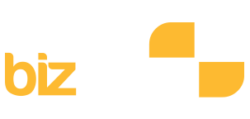The Reckon Team suggest 6 important questions to make sure your software is right for you. ~ WizeOwl
–
As most small business owners know, any help you can get when it comes to your finances is a good thing. In today’s cloud-based tech world, you can get even more help with easy-to-use, integrated accounting software. These platforms make it easy for you to manage your finances no matter where you are. And for most on-the-go small business professionals, that’s a big help in making sure your business is running smoothly at all times.
The question is: do you know which software will be right for you?
Use these 6 questions to ask yourself about what you need. From there, you can make a much more informed decision to get the right accounting software for your business needs.
1) What Exactly Do You Need Your Software to Do?
This is a bit of a loaded question in that it leads to several other questions. However, it’s important to assess this concern as early as possible. You need to figure out exactly what you need – and what you don’t – in your accounting software. This knowledge will help you understand which software packages make the most sense for your small business.
Here are the follow-up questions you should understand before hitting the marketplace:
- What features do I need? Examples include basic bookkeeping, employee payroll management, invoicing, inventory, customer account information, and more.
- Would traditional locally-installed software work, or is a cloud-based online option better?
- Can the software scale based on your business growth or change?
- Is the software compatible with what you already use (e.g. bank integration, types of computers used)?
Answering these questions and the next one will make the selection process that much easier for you.
2) What Is the Overall Return on Investment Potential?
Once you understand the functions you need, you need to take some time to think about cost. You want your new accounting software to help your finances, not hinder them! Accordingly, you don’t want to overspend on a solution that does too much and isn’t worth the investment.
As you’re looking at all the available options, you’ll be blown away at how much there is to offer. One of the most important points of this browsing process is determining the following:
- What –exactly– does your business need (answered in Question #1)?
- What’s the –most– you can spend?
Remember, you’re looking for functionality over pizzazz. You’ll definitely see a lot of flashy software suites out there that might look good. But if they’re not functional, user-friendly, and meeting your business needs, who cares how slick the interface looks?
Don’t let useless features or a slick design trick you into getting an accounting software package that is too much. Remember to stick with your investment budget. Additionally, set up a realistic timeframe for how long it will take to implement the software into your daily operations. This will help you determine whether or not the investment will be worth the money in the long run.
3. Can You Easily Migrate Your Current Accounting Information and Customer Data?
This question holds if you’ve already had an older system that you’re looking to replace or upgrade. The last thing you want to do is encounter issues moving all your old customer data into the new system. And who has time to painstakingly reenter data like that?
You’ll want to verify that your accounting information will fit into the new system you choose. Additionally, many vendors will include the migration of your old data into the new system. If you don’t have time to complete this step yourself (and honestly, who does?), then you may want to identify a solution that includes this option as part of the installation process.
4. What Is the Software’s Security Policy and Track Record?
Most vendors will sell you on the convenience factor of something like an online, cloud-based accounting solution. But all that convenience may come at a price: your security. Even a minor data breach for a small business could wreak havoc in terms of customer details, credit card number thefts, and other problems. Those are issues you don’t want to have to endure.
So how can you avoid these types of issues with new accounting software? Now is the time to do a little bit of homework. Before you opt for your software choice, follow these security-based steps:
- What do the reviews say about the platform’s security?
- Are there any complaints about security breaches or other issues?
- What is the company’s policy for data breaches and other security vulnerabilities?
Remember, it’s your financial data at stake here. You want to make sure that it stays secure and protected from hacks or unauthorised access. That means you need to take the time to ensure the platform you choose has a solid history of security.
5. What Are the Reviews Saying?
Much like taking the time to review a company’s security track record, you also need to have a look at what people think of a platform in real-world usage. Reviews are a great way to get insight into how an accounting software functions ‘in the wild.’ And this insight can show you much more directly where a platform’s strengths or weaknesses may lie.
Make sure to look at both official reviews from tech websites as well as customer reviews. Both sides of this equation will examine elements a little bit differently:
Third party website/trade publication reviews will assess software with specifics, often comparing and contrasting key elements to other available options.
Customer reviews will give you a true reflection of usability, outlining where a software does and does not help a business.
When doing your homework, you can check all these online avenues to give you a thorough glimpse into a software’s overall public perception:
- Website Community: Check direct at the source with the company’s own website community. You may have resources such as a knowledge base, forums, and other places where current users are talking about the software.
- Social Media Presence: What are people saying about a product on social media? Remember to check all the major sources including Facebook, Twitter, Instagram, Google/YouTube, and any others where the company has a presence.
- Related Referral Websites: Referral websites are another source of direct feedback about this type of software.
- Trade Publications: As mentioned, reviews and articles from professional trade publications give you a deeper level of comparison power. Read reviews from multiple sources to ensure you’re getting a well-rounded understanding.
- Net Promoter Score (NPS): If this score is available, it’s another great comparison tool which measures customer support and loyalty. A higher score means a higher number of people who support a platform compared with those who do not recommend it.
6. How Is the Client Support?
Let’s say it’s zero hour with a major client. You’re frantically working through some numbers to ensure that you keep this client happy – and keep the account. You load up your accounting software platform, and…
…
Nothing.
What happens if your account becomes inaccessible, your software malfunctions, or something else goes haywire? These are the points where support becomes an essential aspect of whichever accounting software you choose.
You’ll want to keep an eye out for the following support options:
- Included Support: You need to make sure that the software includes worthwhile, ongoing support. This holds especially true with cloud-based solutions where many companies charge extra for one-on-one support services.
- 24/7 Availability: As most of us know, Murphy’s Law (i.e. “anything that can go wrong will go wrong”) likes to rear its ugly head at the most inopportune moments. Opt for companies that provide the support you need any time you encounter these types of issues.
- Comprehensive Knowledge Base: A well-organised and intuitive knowledge base can allow you to quickly search for a problem you may be encountering and find a solution. In many cases, you can find and resolve any issue much more quickly than working with a live customer service representative.
- Forums or Discussion Boards: Much like a knowledge base, a collection of active users on a forum or other board can provide lots of support as well. Both current customers and company representatives can give you answers. Oftentimes, you’ll find a resolution already posted for a problem you may have encountered.
–
For more help & to explore your software options, contact Bizwize today.



